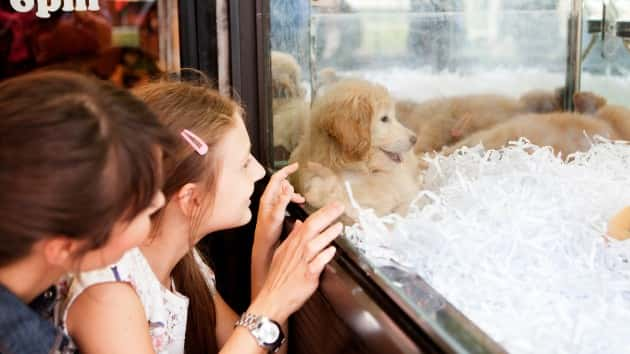
M_a_y_a/iStock
M_a_y_a/iStock(NEW YORK) — Officials at the U.S. Centers for Disease Control and Prevention say they are investigating a multi-state outbreak of a drug-resistant infection believed to be linked to puppies purchased from pet stores.
At least 30 people across 13 states have been infected with a multi-drug resistant strain of Campylobacter jejuni, a bacterial infection that’s generally mild but can be fatal among very young children or people with weakened immune systems.
There have been no reported deaths, though at least four people have been hospitalized, according to the CDC.
“Epidemiologic and laboratory evidence indicate that contact with puppies, especially those at pet stores, is the likely source of this outbreak,” CDC officials said in a statement Tuesday.
A majority of the affected people reported having contact with a puppy, including one puppy that came from a pet store. More than half of these people were linked to Petland, an Ohio-based pet store chain with 131 locations across the United States.
At least five of those infected were Petland employees, according to the CDC.
Campylobacter bacteria isolated from clinical samples taken from people infected in the outbreak are resistant to commonly recommended, first-line antibiotics.
Moreover, laboratory evidence indicates that Campylobacter bacteria found in those infected are closely related to bacteria blamed in a similar outbreak linked to pet store puppies in 2016-2018, according to the CDC. Contact with puppies sold through Petland stores were said to be a likely source of that outbreak.
The people affected in the current outbreak range in age from 8 months to 70 years, and about half are female.
Most of the cases were reported in Minnesota and Ohio, with the illnesses having starting between early January and mid-November, according to the CDC.
Common symptoms of a Campylobacter infection include diarrhea, fever and stomach cramps. The illness typically lasts about a week, and most people recover without antibiotic treatment.
There are precautions people can take to stay healthy around man’s best friend. The CDC advises pet owners and pet store workers to always wash their hands thoroughly with soap and water after touching a puppy or dog, after handling their food and after cleaning up their messes.
Pet owners should also take their new puppy or dog to a veterinarian for a check-up within a few days of getting them.
Copyright © 2019, ABC Audio. All rights reserved.